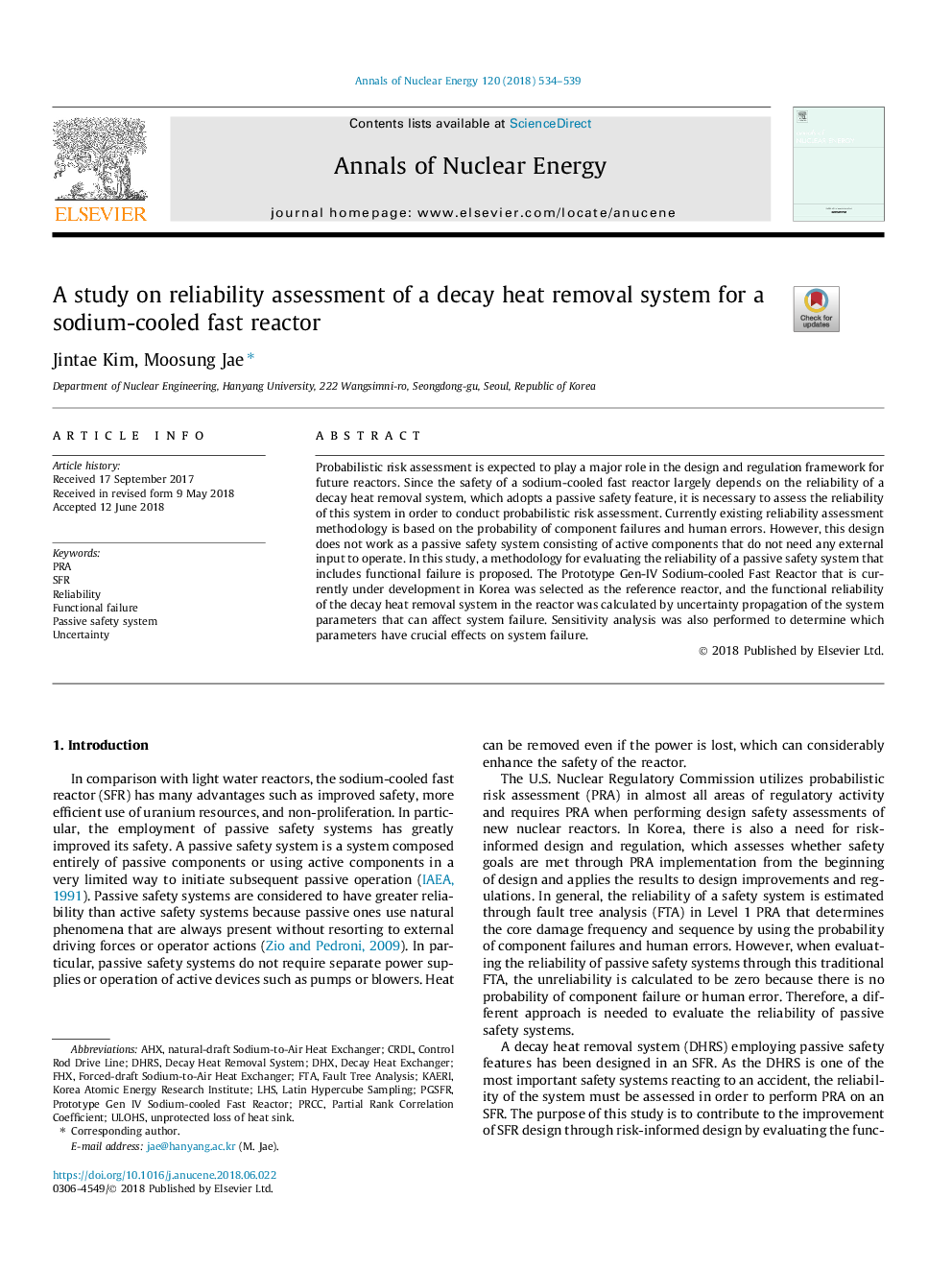| Article ID | Journal | Published Year | Pages | File Type |
|---|---|---|---|---|
| 8066863 | Annals of Nuclear Energy | 2018 | 6 Pages |
Abstract
Probabilistic risk assessment is expected to play a major role in the design and regulation framework for future reactors. Since the safety of a sodium-cooled fast reactor largely depends on the reliability of a decay heat removal system, which adopts a passive safety feature, it is necessary to assess the reliability of this system in order to conduct probabilistic risk assessment. Currently existing reliability assessment methodology is based on the probability of component failures and human errors. However, this design does not work as a passive safety system consisting of active components that do not need any external input to operate. In this study, a methodology for evaluating the reliability of a passive safety system that includes functional failure is proposed. The Prototype Gen-IV Sodium-cooled Fast Reactor that is currently under development in Korea was selected as the reference reactor, and the functional reliability of the decay heat removal system in the reactor was calculated by uncertainty propagation of the system parameters that can affect system failure. Sensitivity analysis was also performed to determine which parameters have crucial effects on system failure.
Keywords
Related Topics
Physical Sciences and Engineering
Energy
Energy Engineering and Power Technology
Authors
Jintae Kim, Moosung Jae,
